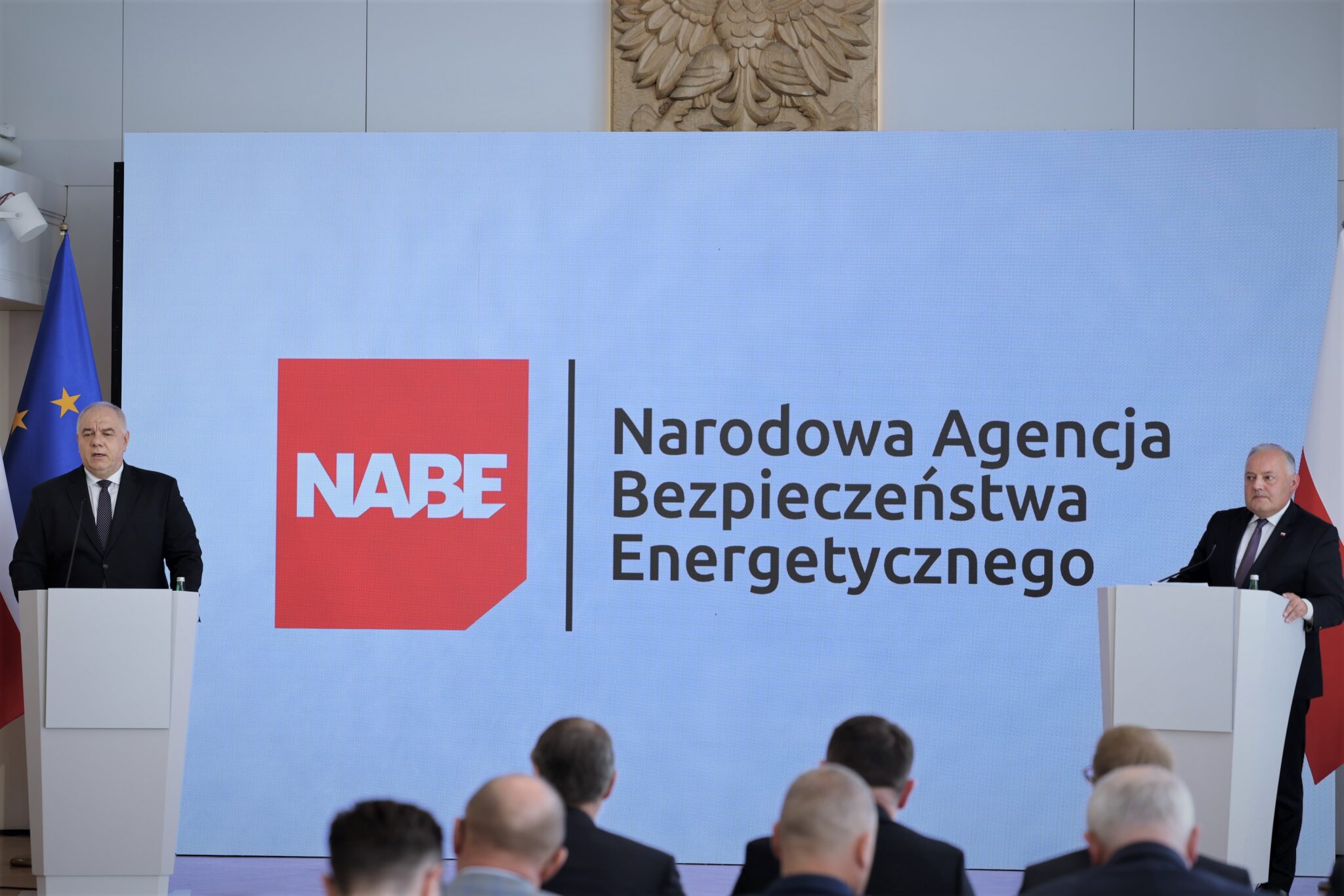
If we want to have more green energy in Poland, the National Energy Security Agency, which is taking over coal, is necessary to find funds for this purpose - writes Marcin Roszkowski, president of the Jagiellonian Institute.
Presentation of the logo of the National Energy Security Agency. Picture by the Ministry of State Assets (MAP).
It is already too late to re-design the reform of the management of coal assets, which no one in the market wants, but without which the National Electricity System cannot cope, and with which companies will not be able to invest in renewable energy sources.
NABE is a solution that has been prepared for years, and the electricity sector needs it right away. The problem, then, is not the NABE reform, but that it has not been carried out yet. So fingers crossed that this Agency will be established in autumn 2023, this time for sure.
The preparations are for a financing model with a particular focus on servicing commitments under the EU ETS CO2 emissions trading scheme. This action, taken today separately in different companies of the state treasury, will consist in NABE turning over tens of billions of zlotys a year. It was possible to get the green light for solutions in this area.
Poland currently generates about 70 percent of its energy from coal and its share will decrease through the emergence of new capacities: nuclear and renewable energy. NABE will ensure the operation of thirteen power plants with a total capacity of 23.4 GW, without which the generation gap will widen, that is, the difference between the demand for energy, which is expected to continue to grow, and the supply of power from power plants, which would be dropping without the Agency.
The energy market must be robust and protected from monopolies. The creation of the NABE is intended to free state-owned companies from the burden of coal assets so that they can compete in the market with energy suppliers through greening the portfolio. The coal will be under state control to ensure safety and not to disturb. A similar coal reserve solution, albeit with a few differences, was implemented in Germany.
When calculating the costs of this reform, one should consider how much we would have to pay for its absence. The Energy Regulatory Authority forecasts the generation gap in 2034 at almost 5 GW, which is the same as the capacity of the largest coal-fired power plant in Europe, in Bełchatów, which will continue to produce energy only thanks to the creation of NABE, while renewable energy will cope on its own.
If we want to have more green energy in Poland, the National Energy Security Agency, which is taking over coal, is necessary to find funds for this purpose – writes Marcin Roszkowski, president of the Jagiellonian Institute.
Presentation of the logo of the National Energy Security Agency. Picture by the Ministry of State Assets (MAP).
It is already too late to re-design the reform of the management of coal assets, which no one in the market wants, but without which the National Electricity System cannot cope, and with which companies will not be able to invest in renewable energy sources.
NABE is a solution that has been prepared for years, and the electricity sector needs it right away. The problem, then, is not the NABE reform, but that it has not been carried out yet. So fingers crossed that this Agency will be established in autumn 2023, this time for sure.
The preparations are for a financing model with a particular focus on servicing commitments under the EU ETS CO2 emissions trading scheme. This action, taken today separately in different companies of the state treasury, will consist in NABE turning over tens of billions of zlotys a year. It was possible to get the green light for solutions in this area.
Poland currently generates about 70 percent of its energy from coal and its share will decrease through the emergence of new capacities: nuclear and renewable energy. NABE will ensure the operation of thirteen power plants with a total capacity of 23.4 GW, without which the generation gap will widen, that is, the difference between the demand for energy, which is expected to continue to grow, and the supply of power from power plants, which would be dropping without the Agency.
The energy market must be robust and protected from monopolies. The creation of the NABE is intended to free state-owned companies from the burden of coal assets so that they can compete in the market with energy suppliers through greening the portfolio. The coal will be under state control to ensure safety and not to disturb. A similar coal reserve solution, albeit with a few differences, was implemented in Germany.
When calculating the costs of this reform, one should consider how much we would have to pay for its absence. The Energy Regulatory Authority forecasts the generation gap in 2034 at almost 5 GW, which is the same as the capacity of the largest coal-fired power plant in Europe, in Bełchatów, which will continue to produce energy only thanks to the creation of NABE, while renewable energy will cope on its own.









